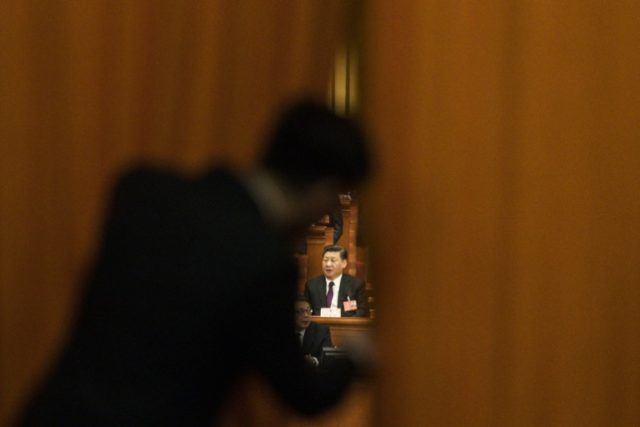The European Union has decided to get a little tougher with China, although its members are divided on exactly what that means. The international organization apparently wishes to curtail Chinese political influence without unduly interfering with anyone’s ability to take Chinese money.
As Reuters reported on Wednesday, the triggering event for the latest round of European anxiety was clearly Italy moving into China’s orbit via the Belt and Road infrastructure program. Chinese President Xi Jinping is expected to sign a number of major trade deals with Italy during his visit to Rome this week, making Italy the first G7 nation to sign aboard Belt and Road.
This landmark event belatedly awakened the EU to the threat China poses to European sovereignty and global economic competitiveness:
With China’s Xi starting a tour of France and Italy, EU leaders — who have often been divided over China — want to present a united front ahead of an EU-China summit on April 9.
According to a draft April summit statement seen by Reuters, the EU is seeking deadlines for China to make good on trade and investment pledges that have been repeatedly pushed back.
That was the message delivered to State Councillor Wang Yi by EU foreign ministers on Monday. It marked a shift toward what EU diplomats say is a more “assertive and competitive mindset”.
“In the past, it has been extremely difficult for the EU to formulate a clear strategy on China, and past policy documents have not been strategically coherent,” said Duncan Freeman at the EU-China Research Centre at the College of Europe. “There is now a clear effort to do that.”
The Europeans are sensitive to the appearance that they are slowly coming around to the view on China that U.S. President Donald Trump held all along. The Reuters piece mentions the EU’s reluctance to accept American advice to ban Chinese technology from their 5G wireless networks or engage in other measures that could be seen as “protectionism.”
“It is tempting to try to lock out China, to decouple rather than to discipline. That might work in the short term. But the long term requires a deeper fix, systemic reforms built to last,” said EU trade chief Cecilia Malmstrom of Sweden.
If Malmstrom went on to explain how she envisions compelling arrogant, aggressive China – the aspiring global hegemon that swats aside international court rulings like buzzing flies and tells the world to butt out while it commits cultural genocide – to accept these deeper fixes and systemic reforms, Reuters did not quote her on the subject.
EU leaders are talking tough these days, but the bottom line is that they wish to curtail Chinese political influence without limiting its economic influence in any significant way, an unsolvable conundrum that boils down to Europeans pleading with the Chinese to stop treating them unfairly.
The EU is China’s number-one trading partner and only the United States buys more goods from Europe than China. Europe’s military power is negligible in Chinese eyes. Italian membership in Belt and Road will shatter European solidarity, with the most likely outcome being a belated EU endorsement of the Belt and Road deal it is currently condemning, just to save face. China has far more leverage over Europe at the moment than the reverse.
A mark of the EU’s unseriousness is that EU representatives hastened to assure Beijing the very same summit described to Reuters as the Europeans developing an “assertive and competitive” attitude toward China was actually about learning to cooperate with China even more. Europeans mutter about Chinese aggression and unfair trade practices behind their backs – but to the faces of Chinese officials, they promise comprehensive strategic partnerships.
“This is not the direction of confrontation; this is not a direction of containment. This is a direction of cooperation and of working together resolving our differences,” European External Action Service director Gunnar Wiegand purred to China’s EU ambassador on Wednesday.
Amusingly, one of the EU complaints about China is that it justifies having a closed economy and unfair trade practices by claiming to be a developing nation, even though it now boasts the world’s second-largest economy… and yet Chinese Ambassador Zhang Ming played that very same dog-eared card on Wednesday, citing China’s relatively low per-capita income and Europe’s much longer history as an industrialized nation to argue that China’s trade practices cannot be compared to those of Europe.
The South China Morning Post reported on Thursday that China is aware of European “unease” and is taking steps to rectify it, such as rescheduling the annual EU-China summit to make the Europeans feel more important, conducting an international “charm offensive,” offering assurances that Chinese telecom equipment is safe to use, promising not to poach Eastern European nations from the EU’s orbit, and hinting at more Chinese investment in Europe.

COMMENTS
Please let us know if you're having issues with commenting.